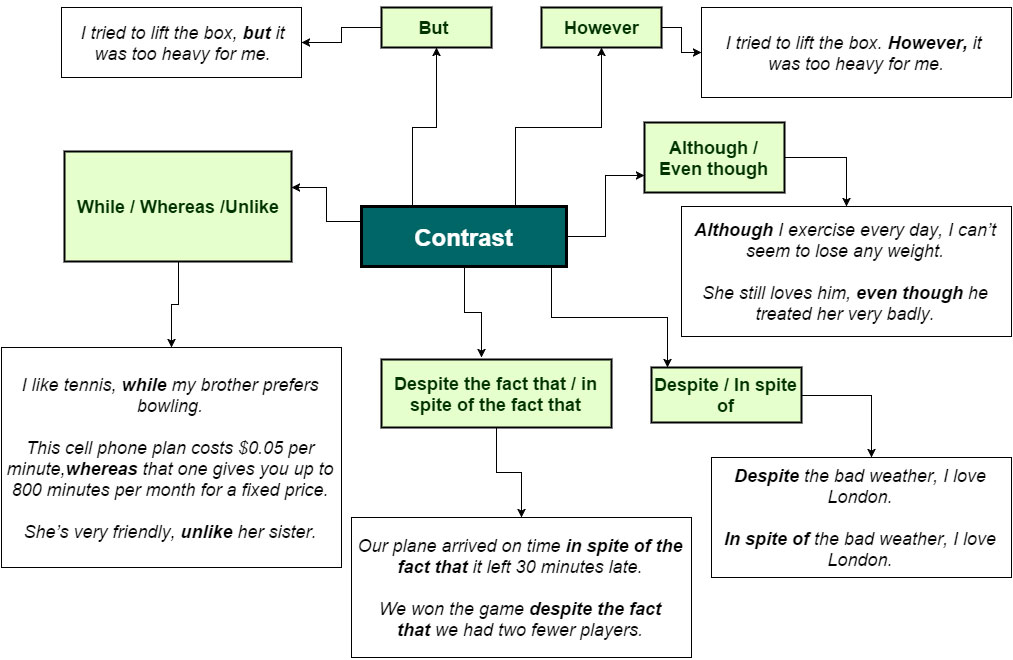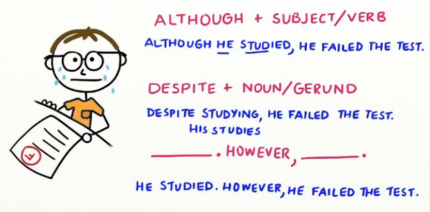Linking devices of contrast
1. A pesar de que no había calefacción central, la casa estaba caldeada.
- Some experts think the world is growing warmer, but others disagree.
While some experts think the world is growing warmer, others disagree.
- I don't enjoy rock music, but I went to the concert anyway.
Although I don’t enjoy rock music, I went to the concert anyway.
- Whereas prices rose last year, this year they have gone down.
Prices rose last year; however, this year they have gone down.
- Jim had a headache, but he still read until late.
In spite of his headache, Jim still read until late.
- Even though they were losing at half-time, City won in the end.
Despite (being) losing /the fact that they were losing, City won in the end.
- He wants to work as a disc jockey, whether his parents like the idea or not.
He wants to work as a disc jockey, even though his parents don’t like the idea.
- Sam lost his job because he was lazy.
Sam was lazy so he lost his job.
- I couldn't buy the house because it was expensive.
The house was so expensive that I couldn’t buy the house.
- The book was so interesting that I couldn't put it down.
It was such an interesting book that I couldn’t put it down.
- There was too much noise, so we couldn't hear the speech.
There was so much noise that we couldn’t hear the speech.
- The house was too much small to live in comfortably.
The house wasn't big enough to live in comfortably.
- The class was cancelled because there weren't enough students.
There were so few students that the class was cancelled.
- The mouse ran into its hole to avoid being trapped by the cat.
The mouse ran into its hole so as not to be trapped by the cat.
- She set the timer to avoid overcooking the beans.
She set the timer in order not to overcook the beans.
- They used chemicals in order to kill the insects in the trees.
They used chemicals so as to kill the insects in the trees.
16. They made several complaints to the manager to prevent the same thing from happening again.
They made several complaints to the manager so that the same thing couldn’t happen again.
2. We went out despite / in spite of the rain.
3. We went out although / though it was raining.
4. Though / although my husband didn’t like the movie, I enjoyed it a lot.
5. He passed the test. However, he didn’t get the job.
6. Although / though he passed the test, he didn’t get the job.
7. They managed to do it though / although I was not there.
8. Tired though he was, he went on working.
9. However hard she tried, she couldn’t do it.
10. In spite of the headache, I enjoyed the movie.
11. Although I don’t agree with him, I think he is honest.
12. We understood him despite his strong accent.









No comments:
Post a Comment